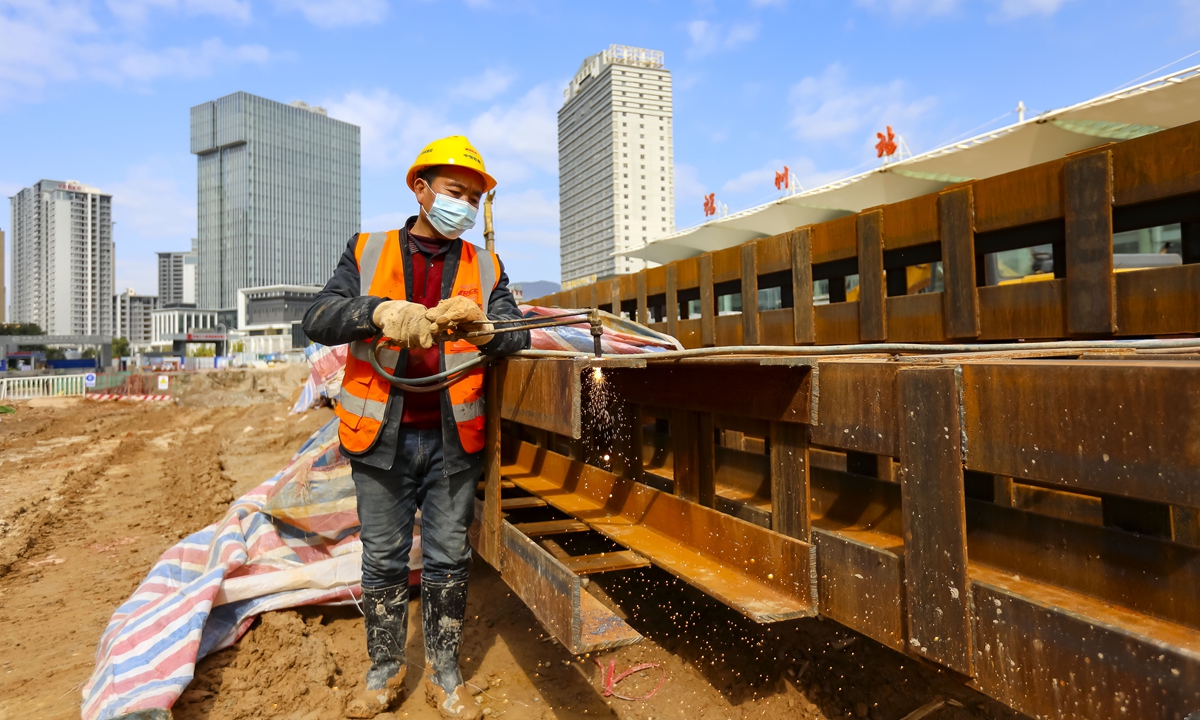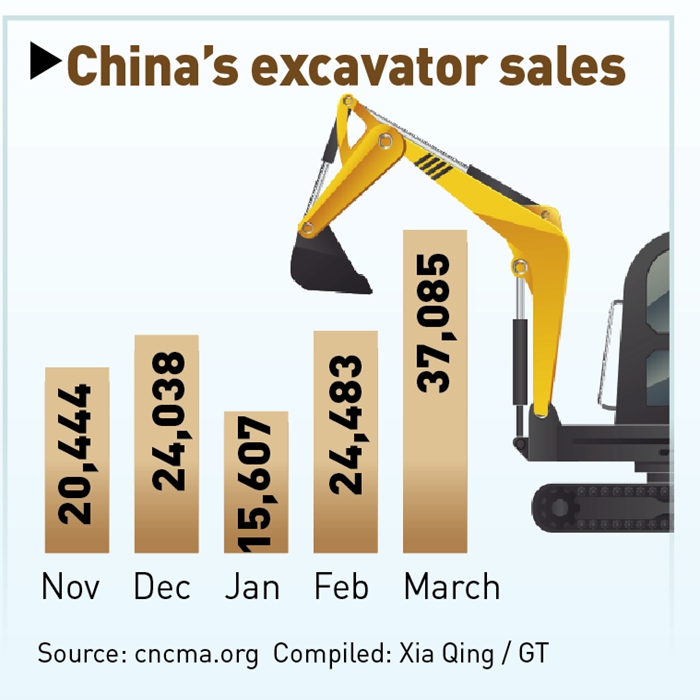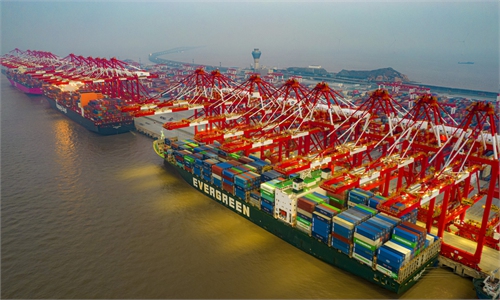Infrastructure construction contributes 8% of economic growth in Q1 while sales of excavators fall amid COVID-19 outbreaks

A worker cuts steel at a construction site in Fuzhou, East China's Fujian Province in February 2022. Photo: cnsphoto

Compiled: GT
Even though China's economic development has been facing challenges and uncertainties as a direct result of sporadic COVID-19 outbreaks, the nation's strengthening efforts targeting infrastructure investment, construction and accelerating the issuance of special-purpose bonds will significantly contribute to the first quarter economic growth.
However, in the face of ongoing domestic outbreaks, the delay and suspension of a number of domestic construction projects, logistics disruptions and tight labor market, has already led to a slump in the sale of domestic excavators.
"The sales of our excavators remained fine, but the shipping conditions vary day by day depending on different epidemic prevention measures across the country," a manager surnamed Han from a construction machinery company based in East China's Shandong Province told the Global Times.
Han's company is not the only one which has been facing challenges with the epidemic.
In March, a total of 37,085 excavators were sold both at home and abroad, a year-on-year decrease of 53.1 percent. Among them, 26,556 units were sold in China, down 63.6 percent compared with the previous year, data from the China Construction Machinery Association showed.
Some 51,886 excavators were traded domestically from January to March, a 54.3 percent decline compared with 2021.
Ongoing COVID-19 outbreaks have also caused the decline in excavator sales in March as well as impacted the progressing construction projects in the country, Li Hongbao, an excavator industry observer, told the Global Times on Sunday.
Tian Yun, a Beijing-based economist, said on Monday that government authorities have approved multiple construction projects since the beginning of the year, but some enterprises remain hesitant over purchasing large quantities of equipment and materials based on current market conditions and price hikes.
Official data from the National Bureau of Statistics showed that the number of new investment projects started increased by 1.1 times year-on-year, and the total planned investment in new projects increased by 62.8 percent from January to February.
Meanwhile, Tian also noted that some projects have entered construction only to be paused due to local COVID-19 outbreaks, and therefore having only a limited impact on economic growth.
Peak season expected
Peak demand for excavators is also set to be pushed back from May through to June instead of the traditional March and April peak following the resurgence of COVID-19 across a number of regions in the country, as it usually takes about one to three months for suppliers to reach the peak demand after the start of a new project, news outlet stcn.com reported, citing an industry insider.
The industry insider added that the infrastructure-driven demand for the construction machinery industry has only been stalled by the resurgence of the epidemic, but will not disappear.
Meanwhile, the exports of excavators saw an increase in March with a 73.5 percent year-on-year increase, reaching 10,529 units. The total number of excavators exported overseas reached 25,289 over the first three months of 2022, up 88.6 percent.
As multiple regions and countries across the globe have been relaxing their epidemic prevention measures, infrastructure construction activities have been gradually resuming, leading to an increase in orders from overseas, according to Li.
Moreover, Li noted that the price of an excavator is relatively high on the international market compared with pricing in the domestic market.
Despite the lingering uncertainties and challenges caused by the epidemic, the progress made in infrastructure construction and investment is set to play a key role in driving economic growth during the first quarter of 2022.
Infrastructure construction may contribute around eight percent of overall economic growth for the first quarter of the year, Wu Chaoming, a vice president of Chasing International Economic Institute, told the Global Times on Sunday.
In the first quarter of 2022, the country issued a total of 1.30 trillion yuan ($204 billion) of special-purpose bonds, approximately 89 percent of the early approval quota which is about 1.46 trillion yuan, accounting for 36 percent of the annual issuance plan, marking the fastest issuance in history, news outlet yicai.com reported, citing data from the Everbright Securities.
Among the issuance, the proportion of special bonds used for infrastructure reached 66 percent in the first quarter, up from 59 percent in 2021.
The issued special bonds have also been adopted to promote the construction of new types of infrastructure such as the internet industry, Dong Dengxin, director of the Finance and Securities Institute at the Wuhan University of Science and Technology, told the Global Times, adding that the investment in infrastructure construction can comprehensively reflect how infrastructure construction boosts economic growth.
Wu noted that the impact on infrastructure construction from ongoing domestic outbreaks has been relatively limited, as impacted cities like Shanghai are not heavily dependent on infrastructure construction.
Moving forward, Wu expected that the infrastructure construction in the second quarter will further accelerate economic growth forecasting figures of between six to 11 percent as domestic outbreaks are gradually brought under control.



